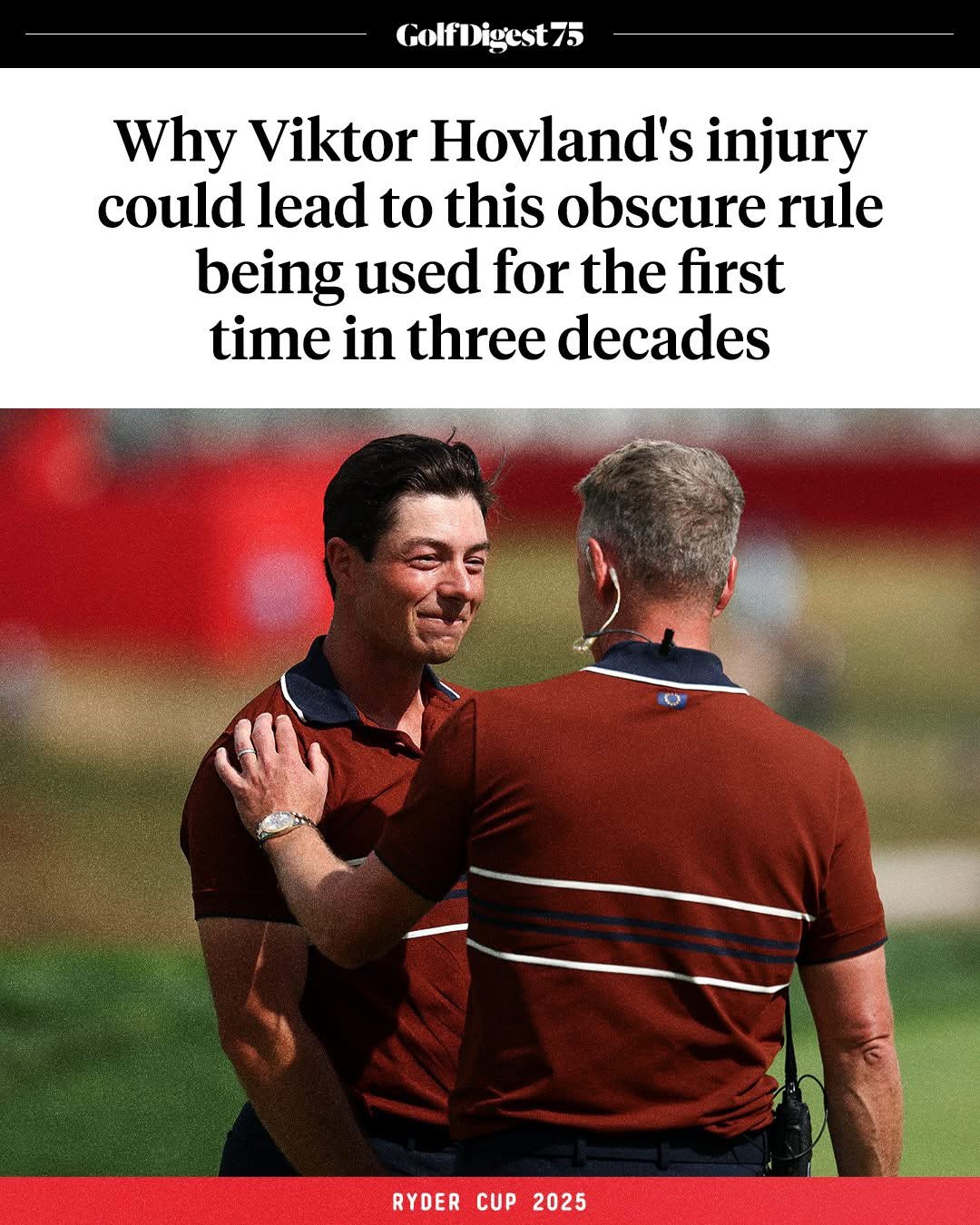Viktor Hovland’s sudden injury scare at the Ryder Cup has sparked conversations not just about Europe’s prospects, but also about a little-known rule that hasn’t been enforced in nearly thirty years. If the Norwegian star is unable to continue, tournament officials may be forced to dust off a rarely invoked clause in Ryder Cup history—one that could alter the balance of the competition dramatically.
The Injury Concern
Hovland, who has been one of Europe’s most reliable performers in recent years, appeared to pick up a knock during Friday’s fourball session. Though he managed to complete his round, sources close to Team Europe suggested he was receiving extensive treatment behind the scenes. Captain Luke Donald downplayed the severity, but the prospect of Hovland being sidelined for subsequent sessions has already fueled speculation about how the team would cope with the loss of one of its key players.
The Obscure Rule
According to Ryder Cup regulations, if a player is deemed unable to continue due to injury, the team may have to compete shorthanded. The specific rule—buried in the competition’s handbook—states that no replacement player can be called in once the matches begin. Instead, the team must either forfeit the match in which the injured golfer was scheduled to play, or, in rare cases, request a reconfiguration of pairings to minimize disruption.
This rule has not come into play since the early 1990s, when Europe nearly had to concede a match due to a player being struck down by illness. Ultimately, that competitor was able to soldier on, and the rulebook provision faded into obscurity. But Hovland’s situation has brought it roaring back into focus.
What It Would Mean for Team Europe
If Hovland is unable to compete, Europe would effectively have to play one man short in the remaining sessions. In foursomes and fourballs, his absence could force last-minute reshuffles, disrupting the careful strategy Luke Donald and his vice captains have mapped out for months. In singles, the situation is even more precarious—Europe would be forced to concede a full point to the Americans if Hovland could not take the tee.
That single point, in a contest historically decided by the narrowest of margins, could prove pivotal. In 1991 at Kiawah Island, the Ryder Cup was famously decided by just one point. Forfeiting a match under this rule could tilt the momentum heavily in the Americans’ favor.
The Precedent
The last time this obscure provision was seriously considered was during the 1993 Ryder Cup, when Europe’s Sam Torrance suffered a foot injury. There were fears he might not be able to continue, but he ultimately played through the pain. Since then, no Ryder Cup has required the enforcement of this concession rule, making it one of the least-used clauses in team golf.
The Bigger Picture
For Hovland, who has quickly established himself as one of the most consistent players in the world, the injury scare is an unfortunate twist at a time when Europe needs his firepower the most. For golf fans, it’s a reminder of just how fragile the Ryder Cup’s delicate balance can be.
If invoked, the injury rule would serve as both a historical rarity and a potentially decisive moment in this year’s contest. It would also reignite debates about whether the Ryder Cup should consider adopting a “reserve player” system, similar to formats used in other team sports.
What’s Next
As of now, Team Europe has not confirmed whether Hovland’s injury will limit his participation. If he recovers quickly, the scare will be just that—a scare. But if his condition worsens, golf fans may witness the first use of one of the Ryder Cup’s strangest and most consequential rules in over three decades.
Until then, all eyes remain on Viktor Hovland—his health, his swing, and whether his absence might force history’s hand.









